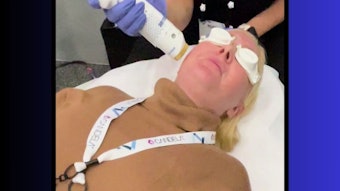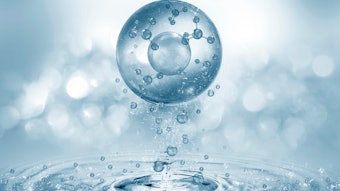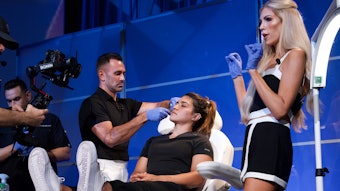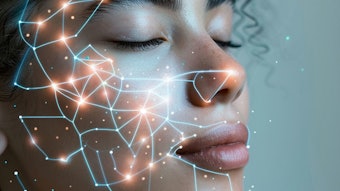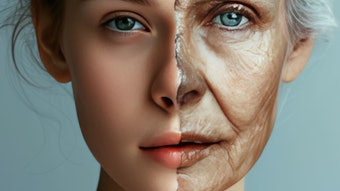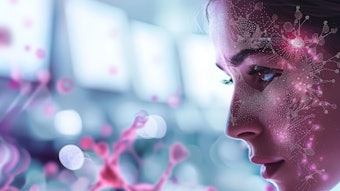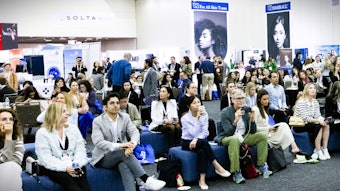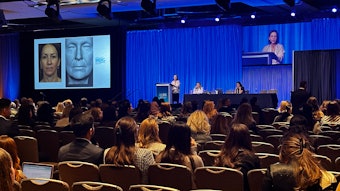
The human experience and attention to mental health, empathy and compassion in relation to better caring for patients on an individual level as well as improving treatments for patients across the board, eliminate painful elements of treatments and provide more effective treatments to those patients that may not have access to them and need it most was front and center at ASLMS 2024. While the essence of medicine has always been about helping people, the focus on truly aiming to help people’s quality of life in terms of aesthetics and personal well-being has not always been center stage in this industry. However, with the incredible advances we’ve seen in medical aesthetics in the last few years alone, there are more possibilities to advance treatments now to address both aesthetic goals and those related to patients’ emotional wellbeing, as well as make those treatments both less painful and more effective.
Related: ASLMS 2024 Spotlight: Next Gen Aesthetic Product Innovation
Compassion & Connection: Inspiring Curiosity, Passion & Determination to Discover More
The focus on helping patients from a variety of different angles instead of only focusing on the aesthetic outcome, which is still the primary concern since it also directly relates emotional wellbeing, is a movement spreading throughout aesthetics and was reflected in the topics discussed at this year’s ASLMS meeting and ASLMS 2024 Celebration of Women in Energy-Based DevicesPhoto courtesy of ASLMS
ASLMS 2024 Celebration of Women in Energy-Based DevicesPhoto courtesy of ASLMS
This is leading to the development of new devices that are able to be just as, if not more, effective while also causing little to no pain for patients, as well as groundbreaking treatment innovations that are changing the entire aesthetics game. It is this determination and desire to help people, to improve their quality of life on many levels, that pushes us to go past the established boundaries and create new revolutionary technologies that ultimately change lives and the world.
ASLMS Celebration of Women in Energy-Based Devices
True progress comes from a place of empathy and compassion. It is our connection as human beings and compassion for one another that is able to fill us with unshakeable purpose and determination. The three women recognized at the ASLMS Celebration of Women in Energy-Based Devices wholly embody this mindset.
The Importance of Mentorship: Faben Messele, B.S.
 Faben Messele, B.S.: Early Career Development Award in recognition of her high-quality abstract study, “Characteristics of Basal Cell Carcinoma Subtypes: Long Pulsed 1064 NM ND: YAG Treatment With Optical Coherence Tomography Guidance.”Photo courtesy of ASLMS
Faben Messele, B.S.: Early Career Development Award in recognition of her high-quality abstract study, “Characteristics of Basal Cell Carcinoma Subtypes: Long Pulsed 1064 NM ND: YAG Treatment With Optical Coherence Tomography Guidance.”Photo courtesy of ASLMS
Of course, no one achieves anything alone, so Messele highlighted the importance of her mentors in helping her persevere through adversity and inspire her. She was working on basil cell carcinoma research under the guidance of her mentors, who inspired her with their compassion and passion for improving patient care, which is when she gained a deep appreciation for the importance of mentorship at those times when, “we find ourselves in situations we don’t expect.” Messele homed in on the vital need we all have for proper mentorship and guidance as we grow in our chosen career. No man or woman is an island.
Related: The Pushback on AAD's DEI Initiative Reflects the Lingering Racial Disparities in Dermatology
Collaborate, Discover, Teach & Heal: Kristen M. Kelly, M.D.
 Kristen M. Kelly, M.D.: Ellet H. Drake Memorial Award and the Melanie C. Grossman, MD Award for Leadership, Mentorship, and Advocacy for Women in Medical SciencePhoto courtesy of ASLMS
Kristen M. Kelly, M.D.: Ellet H. Drake Memorial Award and the Melanie C. Grossman, MD Award for Leadership, Mentorship, and Advocacy for Women in Medical SciencePhoto courtesy of ASLMS
Dr. Kelly stated in her ASLMS Award Q&A interview, “I wrote these talks to honor the people for which the awards are named and to highlight some of the values that they embodied during their life. I will talk a little bit about my experiences and hope to inspire and encourage others to take advantage of all the ASLMS and the annual meeting have to offer. I want to encourage others to look for opportunities to Discover, Teach and Heal and to Collaborate with the wonderful members of the society during the meeting and beyond.”
In her presentation, “Discover, Teach, Heal: A Tribute and a Call,” Dr. Kelly challenges practitioners to seek opportunities to discover new treatments and ways to improve patient care. Working together and mentorship are equally crucial elements of progress and improving care, as it is necessary to guide the next generation of practitioners and help them persevere in the face of adversity and challenges that arise and find their passion to discover more. Finally, Dr. Kelly emphasized the job of every medical practitioner to heal, not merely with treatments and medicine, but to “also heal with words and without our words by listening.”  Kristen M. Kelly, M.D.: Ellet H. Drake Memorial Award & the Melanie C. Grossman, MD Award for Leadership, Mentorship, and Advocacy for Women in Medical Science.
Kristen M. Kelly, M.D.: Ellet H. Drake Memorial Award & the Melanie C. Grossman, MD Award for Leadership, Mentorship, and Advocacy for Women in Medical Science.
It was this last topic that struck an emotional chord when Dr. Kelly related a personal story of her negative experience as a patient and the way that interaction affected her emotional well-being. She told the story of a time she went to a doctor’s appointment and was met with disinterest and an utter lack of empathy for her situation and the vulnerability she showed in turning to this practitioner for help and care. The response from the physician greatly affected Dr. Kelly as a patient, making her feel unwanted and shaken from the experience. The profound affect practitioners have on the wellbeing of their patients’ physical and mental health is clear, and this is a perfect example of how a profession meant to heal can also end up hurting patients in ways we don’t always consider. The significance of having compassion and empathy as a medical professional and considering patients’ emotional health is a fact that simply cannot be ignored. Dr. Kelly said it best, “We can do better. I never want to make someone feel unwanted.”
The Power of Curiosity, Passion & Perseverance: Lilit Garibyan, M.D., Ph.D.
 ASLMS 2024 WEBD Featured Speaker, Lilit Garibyan, M.D., Ph.D., Assistant Professor of Dermatology at Harvard Medical School and a Physician-Scientist at the Wellman Center for Photomedicine at MGHPhoto courtesy of ASLMS
ASLMS 2024 WEBD Featured Speaker, Lilit Garibyan, M.D., Ph.D., Assistant Professor of Dermatology at Harvard Medical School and a Physician-Scientist at the Wellman Center for Photomedicine at MGHPhoto courtesy of ASLMS
Related: 4 Inspiring Humanitarian Achievements in Aesthetics [Survey Results]
Despite the daunting language barrier and growing up with socioeconomic challenges, Dr. Garibyan chose to persevere and allowed herself to be open to adventure and her curiosity to push her to learn new things and have new experiences, rather than let adversity dim her light. This strength and determination, along with the support and encouragement of her mentors, led her to study DNA and work in Dr. James Watson’s lab at UCLA while earning her bachelor’s degree, and then on to Harvard University for medical school. While not an easy journey, the adversity and challenges Dr. Garibyan faced fueled her curiosity and tenacity to push boundaries and find new and better treatments for patients suffering from debilitating and chronic skin conditions.
This very perseverance led Dr. Garibyan to take an unintended side effect and challenge of refining coolsculpting technology and see the other possibilities this “problem” presented to improve treatment in another area. Realizing the opportunity to take this element of one technology and use it as a treatment for pain, Dr. Garibyan developed an injectable ice-slurry that can be used to provide targeted and long-lasting pain relief, thus creating an entirely new field of injectable cooling.
This new injectable coolant will revolutionize the treatment of cutaneous pain as well as neuropathic skin pain, both of which are significant factors for patients with various skin conditions, as well as for patients experiencing post-procedure pain. According to one clinical study, “Cutaneous pain is a common symptom of many dermatological and nondermatological diseases. The majority of cutaneous pain is nociceptive pain caused by thermal (such as burns due to heat or radiation), chemical (such as toxins) and inflammatory processes. Neuropathic skin pain caused by a lesion or disease of the somatosensory nervous system is also frequently seen in patients with postherpetic neuralgia and surgical trauma (to nerves and tissue around the surgical site).”  Standing ovation following ASLMS 2024 WEBD featured speaker, Lilit Garibyan, M.D., Ph.D., Assistant Professor of Dermatology at Harvard Medical School and a Physician-Scientist at the Wellman Center for Photomedicine at MGH
Standing ovation following ASLMS 2024 WEBD featured speaker, Lilit Garibyan, M.D., Ph.D., Assistant Professor of Dermatology at Harvard Medical School and a Physician-Scientist at the Wellman Center for Photomedicine at MGH
Brixton Biosciences, the manufacturers of the new injectable coolant, announced in Oct. 2023 that Neural Ice Therapy received Breakthrough Device Designation from the FDA. In clinical studies, animal models have demonstrated the remarkable capability of this treatment to provide relief for three months or more, offering a simple and effective solution to address crucial unmet needs in the field of pain management. In one study, the injectable Neural Ice demonstrated the ability for targeted treatments through “tissue selectivity for peripheral nerves in a rat sciatic nerve model,” and another study demonstrated that this selective cryoneurolysis using Neural Ice provided “long-lasting, reduced mechanical pain sensitivity in a rat sciatic nerve model.”
Dr. Garibyan discussed how the humanitarian work of aesthetic doctors is something we should draw awareness to more often in this industry. For her part, she has dedicated significant efforts to her non-profit, Face of Angel, which works to improve the standard of care and bring current laser devices and treatments to people in Armenia that need it for life-altering chronic skin diseases as well as burn scars from laser treatments with old equipment. The group made their first trip to Armenia in 2013 and have currently donated six lasers.
Most importantly, Dr. Garibyan's hope in telling others of her journey is that it "inspires you to embrace your own curiosity, to find your own grit and tenacity, and to channel your intellectual abilities into pursuits that can change the world. In the words of Albert Einstein, "The important thing is not to stop questioning."


